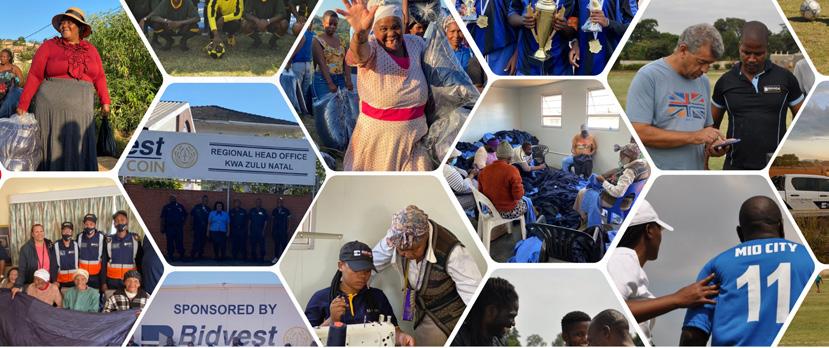
2 minute read
Making inclusive housing a reality
from ConneCT 2022
The provision of accommodation at scale is a key lever in militating against the dearth of affordable housing within Cape Town’s urban and peri-urban areas. Fortunately, microdevelopers already deliver affordable housing across formal neighbourhoods in Cape Town and are best positioned to deliver affordable rental accommodation at scale. The City is committed to supporting these developers and property owners to build safer and better-quality homes, recognising their valuable contribution to a more compact, densified Cape Town and a more inclusive housing market.
Housing construction is a labourintensive economic activity offering significant potential for growth in response to the high housing demand. Support for microdevelopers and the establishment of additional dwellings will result in skills development, job creation and greater property wealth for lower-income families.
Advertisement
Regulatory reform initiative
To be relevant to informal areas, current regulations, processes, ways of work and levels of service need to be adapted to take account of the realities of informal urban growth.
In this regard, the City will develop standards and best practice guidelines specific to building development in less formal contexts to support the current trend of micro-development so that these units can be developed in a safe and sustainable way.
Local planning support initiative
The City is committed to growing its capability to advise microdevelopers on building practices so as to improve and ensure occupants’ health and safety, and to provide development application support.
To this end, a local planning support function is to be piloted. In addition, the City intends to partner with organisations that support the functioning of the secondary property market, such as NGOs dedicated to unlocking finance or assisting with tenure issues for microdevelopers. Moreover, the City will focus on regularising property boundaries in response to microdeveloper and backyard building activity so that these developments can be recognised as property assets and be bought and sold in the formal property market.
Upgrading informal settlements
The City is committed to improving informal settlements rapidly and at scale. The aim is for some level of improvement to occur in all recognised informal settlements in the next five years, giving priority to basic services provision and functional tenure as a first line of response. Informal settlements are not formally planned and the materials used in building homes mean that many informal settlement residents live in unhealthy living environments with limited access to water, sanitation and waste disposal services, and are at risk of fires, flooding, and the impacts of extreme weather and climate change.
The City will drive an evolving programme to upgrade informal settlements, working with and not against informality. Upgrading will focus on creating safer public spaces, access for emergency vehicles, safe and convenient walkways, as well as open space for essential community facilities where possible. This initiative will be supported by a programme of land release where on-site redevelopment is not possible.
The City has good data to inform planning and customer service in formal areas. Yet data to inform the provision of basic services and security of tenure in informal areas is relatively limited. The City is committed to developing robust data systems for informal settlements, recognising that this is crucial for responding to service delivery disruptions and adapting services to changes in population density and the physical characteristics of the area.










